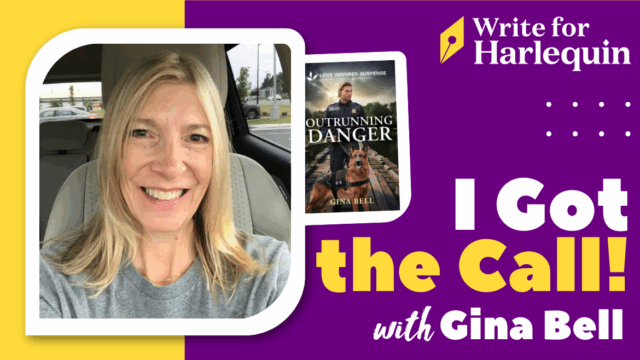This year’s So You Think You Can Write week-long conference was filled with fantastic tips and great information. Just in case you missed it, we thought we’d highlight Harlequin Senior Editor Patience Bloom’s advice on why editors might pass on a project. Originally it was found here, but now it’s twice as useful!
Do you live in fear of the rejection letter? Maybe you’ve received a few and spend days trying to decipher the strange editor language. Just between us, we don’t really like writing these letters. In fact, we’d rather be buying new authors and showing off your amazing stories! But to be helpful, we’ve cobbled together from our team of editing veterans our main reasons for passing on a project:
- Pacing: This is another word for how quickly your story moves. If your first chapter is riveting, but then the momentum slows down after a few chapters, we tend to stop reading.
- Voice: Does your story have a distinct “voice?” Is it unique and true to you? If there is a “sameness” to the prose, go back to the drawing board—and keep writing (Never quit, okay?). Voice often comes from practice and focus.
- Lack of Motivation: So, the hero is mean to the heroine for no reason? And…the villain kills people because he’s bad. Okay, but we’re not buying it. As writers, you need to show us how your characters became who they are.
- Flat Main Characters: We’ve seen the plain Jane before, the helpful auntie who imparts wisdom, the cranky cowboy with the heart of gold—yawn. Okay, he can be a cranky cowboy, but what else makes him special? Why do we have to love your plain Jane? We are truly looking to be dazzled by the fictional people you’ve created.
- Not Original Enough: There may be similar themes in romance, but great writers make the stories their own. If we feel we’ve seen it before too many times, we may pass.
- Plot Holes: You create a plot, a subplot and sub-subplot and they make no sense. Red herring here, red herring there, no idea how to shock the reader and the mystery falls apart. Plotting is incredibly difficult, which is why it’s always good to work with a critique partner or friend to iron out the kinks. Feedback can be so helpful. Your plot doesn’t have to be too complicated, but it should possess a degree of logic.
- Already Reviewed: If you’ve sent us your project before, chances are, it’s in our database. Make sure you send it to one editor at a time and remember that that one editor reviews for all the lines. We generally don’t keep looking at one manuscript over and over again. If at first you get a rejection letter, work on the next book.
- Unedited: You whipped up this romance in five days and, without even proofing it, thought you would send it to us right away. Don’t worry, I’m sure we’ll overlook all the typos, strange formatting and pages that cut off in the middle of a paragraph. Maybe we won’t. Take the time to read and re-read your work. Self-editing is important!
- Not Plausible: The hero and heroine are in the middle of a big fight and a dancing unicorn therapist helps mediate their dispute. Huh? That’s right—romances can seem far-fetched (with billionaires, marriages of convenience, exotic locations and lawmen galore), but don’t make them too far-fetched. Keep that sense of this could really happen.
- Not for Our Programs: With our expanding offerings, it’s less likely that your story wouldn’t have a place at Harlequin. And yet, sometimes, it’s just the truth: The story isn’t what we’re seeking or we don’t think we can sell it within our programs. Many of us have turned down romances that we’ve loved because we knew they didn’t fit the series promise. If you’re not sure what we publish, be sure to check out our writing guidelines on www.harlequin.com
With these top ten reasons, please remember that human beings review your work and it is subjective (but also based on decades of experience). A pass doesn’t mean that you’re untalented or that you’ll never get published—just that this particular project isn’t right for us (or we’re not right for it). If you receive a rejection letter, the best thing you can do is write another book, and, as mentioned, never ever give up writing.
Thank you, Patience, for this great information! She really knows what she’s talking about from both sides of the desk! Check her out @PatienceBloom on Twitter!




